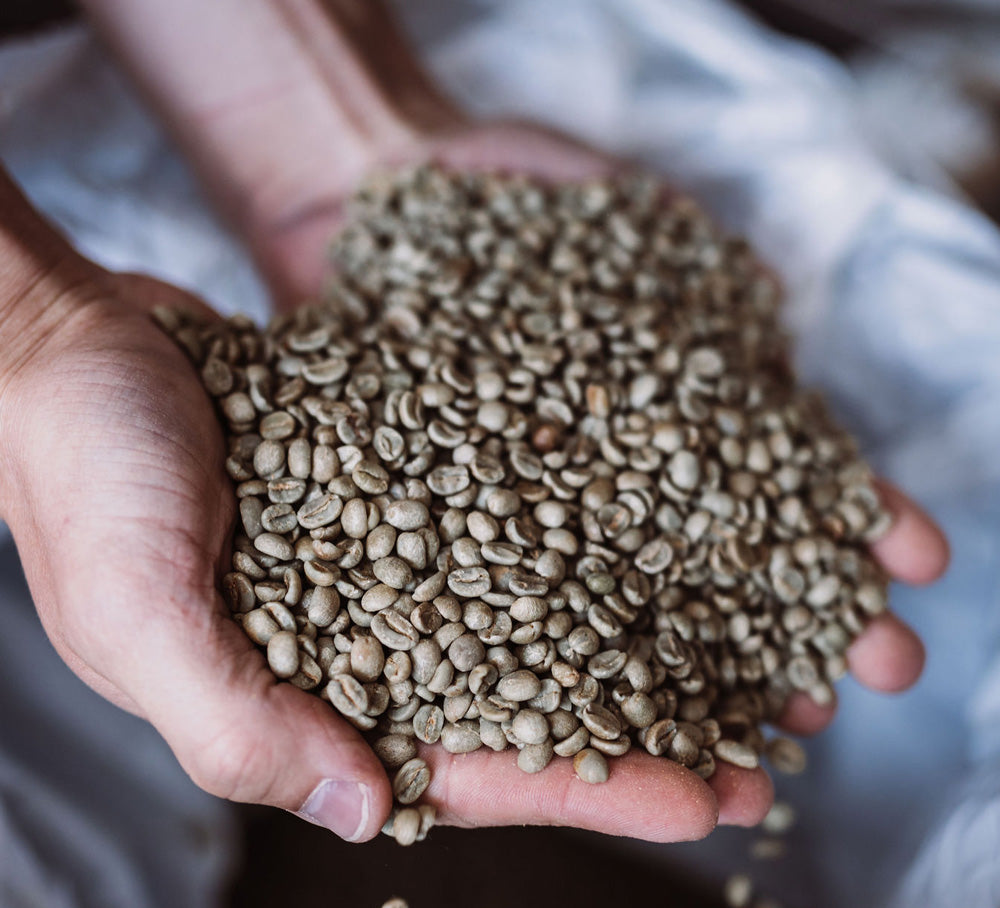Caffeine is becoming increasingly popular in the fitness industry and is now a staple in any good caffeine supplement. After all, caffeine is supposed to boost performance. Right? To answer this question, we're dedicating this week entirely to the topic of caffeine and its performance-enhancing effects. Or rather, whether it actually has any. Enjoy finding out!
Caffeine and its effects
General facts first: Caffeine is a naturally occurring stimulant found in coffee plants, tea bushes, and other plants. It blocks the neurotransmitter enzyme adenosine and can thus reduce fatigue and increase alertness. Caffeine therefore affects the central nervous system.
Caffeine as a performance enhancer
As previously described, many athletes and fitness enthusiasts use caffeine before their workouts to improve their performance – the idea that caffeine enhances performance is therefore not new and is widespread. But how beneficial is caffeine supplementation in sports, really?
Studies on performance enhancement through caffeine
There are numerous studies on this topic. One of the best-known dates back to 1978 and was conducted by Costill et al. They concluded that caffeine can improve endurance in endurance sports such as running or cycling. Subsequent studies have reached similar conclusions. So it's true: caffeine enhances performance. But how exactly does this work? Caffeine promotes the release of fatty acids from adipose tissue and can thus increase performance by improving energy supply to the muscles in endurance sports. It has also been proven that caffeine reduces the feeling of exertion. Athletes therefore feel less exhausted and can last longer.

Caffeine in strength training
We repeat: Caffeine affects the nervous system. Studies have found that this stimulation leads to improved muscle contraction, thus enabling higher repetitions in exercises like bench presses and squats!
And what dosage is required?
Of course, an espresso before a workout won't hurt. However, you unfortunately won't achieve the results described with it. To achieve the effects described, a dose of approximately 2-6 mg/kg of body weight is required. This number further depends on weight, sensitivity, and tolerance. Therefore, don't just start with 6 mg/kg, as the side effects such as nervousness, rapid heartbeat, and sleep problems shouldn't be underestimated! Everyone has an individual reaction to caffeine and should test it out with low doses. So, if you already get jittery from a cappuccino, you should probably avoid caffeine in your training supplements!
Does caffeine also increase endurance in sports?
Again, the answer is: YES! Caffeine allows athletes to train more intensely and for longer periods. This is possible because caffeine promotes the release of adrenaline, increases heart rate, and improves blood flow to the muscles.
Does caffeine help with weight loss?
Of course, you won't lose weight just by drinking coffee. Unfortunately. But when used correctly and combined with exercise, caffeine boosts fat burning. That's why you'll usually find caffeine in so-called fat-burning supplements. This is made possible by caffeine's stimulating effect on metabolism and the release of fatty acids from adipose tissue.

Does caffeine also improve mental performance?
Of course! It's not just athletes who benefit from caffeine's performance-enhancing effects. Numerous studies have proven that caffeine improves memory, cognitive functions, and overall alertness. Therefore, caffeine is particularly useful in situations where you need to be awake, focused, and fully present.
And when do I need to consume caffeine for it to have a performance-enhancing effect?
Timing is crucial here! Consume your caffeine about 30-45 minutes before your planned activity. This gives it enough time to enter your bloodstream and take effect.
Can I get used to caffeine as a performance-enhancing substance?
In fact, people who consume large amounts of caffeine frequently can develop a tolerance. Therefore, caffeine consumption should be carefully monitored and occasional breaks should be taken.
There are quite compelling arguments and scientific evidence supporting the performance-enhancing effects of caffeine. Unfortunately, a single cup of coffee is usually not enough if you want to maximize your athletic performance – highly concentrated caffeine supplements are necessary in this case. However, a cup of coffee before an important meeting, or an espresso before a workout, is a pleasant ritual for many and can promote the right mindset, thus also boosting performance. Therefore, let's not reduce coffee solely to its caffeine content – taste is far more important. And here at our place, the coffee simply tastes great and is perfect to enjoy before a workout!
Your SIMON&BEARNS Team


Does caffeine enhance performance? Facts, myths, and effects on the performance-enhancing properties of caffeine.
Caffeine is becoming increasingly popular in the fitness industry and is now a staple in any good caffeine supplement. After all, caffeine is supposed to boost performance. Right? To answer this question, we're dedicating this week entirely to the topic of caffeine and its performance-enhancing effects. Or rather, whether it actually has any. Enjoy finding out!
Caffeine and its effects
General facts first: Caffeine is a naturally occurring stimulant found in coffee plants, tea bushes, and other plants. It blocks the neurotransmitter enzyme adenosine and can thus reduce fatigue and increase alertness. Caffeine therefore affects the central nervous system.
Caffeine as a performance enhancer
As previously described, many athletes and fitness enthusiasts use caffeine before their workouts to improve their performance – the idea that caffeine enhances performance is therefore not new and is widespread. But how beneficial is caffeine supplementation in sports, really?
Studies on performance enhancement through caffeine
There are numerous studies on this topic. One of the best-known dates back to 1978 and was conducted by Costill et al. They concluded that caffeine can improve endurance in endurance sports such as running or cycling. Subsequent studies have reached similar conclusions. So it's true: caffeine enhances performance. But how exactly does this work? Caffeine promotes the release of fatty acids from adipose tissue and can thus increase performance by improving energy supply to the muscles in endurance sports. It has also been proven that caffeine reduces the feeling of exertion. Athletes therefore feel less exhausted and can last longer.
Caffeine in strength training
We repeat: Caffeine affects the nervous system. Studies have found that this stimulation leads to improved muscle contraction, thus enabling higher repetitions in exercises like bench presses and squats!
And what dosage is required?
Of course, an espresso before a workout won't hurt. However, you unfortunately won't achieve the results described with it. To achieve the effects described, a dose of approximately 2-6 mg/kg of body weight is required. This number further depends on weight, sensitivity, and tolerance. Therefore, don't just start with 6 mg/kg, as the side effects such as nervousness, rapid heartbeat, and sleep problems shouldn't be underestimated! Everyone has an individual reaction to caffeine and should test it out with low doses. So, if you already get jittery from a cappuccino, you should probably avoid caffeine in your training supplements!
Does caffeine also increase endurance in sports?
Again, the answer is: YES! Caffeine allows athletes to train more intensely and for longer periods. This is possible because caffeine promotes the release of adrenaline, increases heart rate, and improves blood flow to the muscles.
Does caffeine help with weight loss?
Of course, you won't lose weight just by drinking coffee. Unfortunately. But when used correctly and combined with exercise, caffeine boosts fat burning. That's why you'll usually find caffeine in so-called fat-burning supplements. This is made possible by caffeine's stimulating effect on metabolism and the release of fatty acids from adipose tissue.
Does caffeine also improve mental performance?
Of course! It's not just athletes who benefit from caffeine's performance-enhancing effects. Numerous studies have proven that caffeine improves memory, cognitive functions, and overall alertness. Therefore, caffeine is particularly useful in situations where you need to be awake, focused, and fully present.
And when do I need to consume caffeine for it to have a performance-enhancing effect?
Timing is crucial here! Consume your caffeine about 30-45 minutes before your planned activity. This gives it enough time to enter your bloodstream and take effect.
Can I get used to caffeine as a performance-enhancing substance?
In fact, people who consume large amounts of caffeine frequently can develop a tolerance. Therefore, caffeine consumption should be carefully monitored and occasional breaks should be taken.
There are quite compelling arguments and scientific evidence supporting the performance-enhancing effects of caffeine. Unfortunately, a single cup of coffee is usually not enough if you want to maximize your athletic performance – highly concentrated caffeine supplements are necessary in this case. However, a cup of coffee before an important meeting, or an espresso before a workout, is a pleasant ritual for many and can promote the right mindset, thus also boosting performance. Therefore, let's not reduce coffee solely to its caffeine content – taste is far more important. And here at our place, the coffee simply tastes great and is perfect to enjoy before a workout!
Your SIMON&BEARNS Team